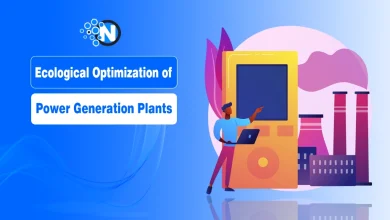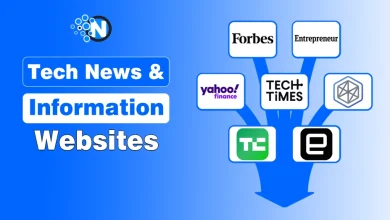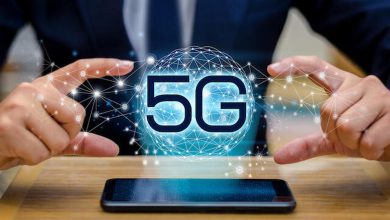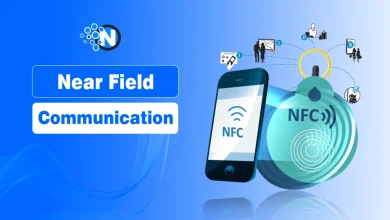Quantum Computing – Understanding the Basics and Implications

Quantum Computing has grabbed the world’s attention for the incredible results and effects it can produce. The works which a classical or a supercomputer is unable to do can be carried out with the help of this technology. Based on Quantum Physics, this kind of computing produces results within the blink of an eye. It can solve the most complex issues besides revolutionizing medicine and weather forecast. We have created this comprehensive guide to understand the basis and implications of Quantum Computing.
What Is Quantum Computing?
Quantum Computing is the manipulation of quantum laws of Physics to carry out various complex processes. Instead of circuit-based components, Quantum Computing features the use of individual atoms, electrons and elementary particles at a microscopic level. The essential purpose behind this computing is devising such devices that can use Quantum Physics to solve our daily life problems, which are complex enough to be handled with ordinary computers. Although this technology needs to be well-developed and very little has been discovered about it, Quantum Computing is still showing its authority and announcing its bright future.
How It Differs From Classical Computers?
As we stated earlier, Quantum Computing is far different from classical computers because of using ultra-microscopic atomic particles. It works at a much faster pace and solves immensely complex problems that normal computers cannot do. Some of the fundamental differences between these two technologies are stated below:
1 – Qubits
Qubits stands for Quantum Bits, forming the basis of Quantum Computing. These differ from the ordinary bits or binary codes used in designing traditional computers. The binary codes are distinct figures that are represented as 0 or 1. On the other side, Qubits are measured as the state of microscopic particles. Qubits are much more potent in storing data than general bits due to the dual nature of photons and other tiny particles.
2 – Superposition
We stated earlier that Qubits exist in more states than general bits. The Quantum bits have the ability to appear in low, high and intermediate forms simultaneously after getting mixed. Thus, it helps increase the operating speed of Quantum Computers.
3 – Entanglement
Entanglement is a state when two distinct objects make a relation with each other. Resultantly, a change in one will eventually put effects on the other. In this way, Quantum Computers can retrieve the complex data conveniently and give you much faster results.
4 – Interference
Interference is when one Qubit cancels the effect of another to generate a more precise answer. Besides canceling, it also supports the right signals for bringing swift responses. Thus, it plays a significant role in carrying accurate results from Quantum Computing.
These are the fundamental differences between Classical Computing and Quantum Computing. Due to large sizes, the old binary codes do not exhibit the phenomena mentioned above. As a result, they are unable to resolve the complex questions. While the electrons, protons and photons are tiny in size and can act as particles and waves at once, forming the basis of Quantum Computing.
Quantum Computing – The Basic Demand Of Modern World
Quantum Computing is now the basic demand of the modern world. It has enormous benefits over ordinary software due to the application of ultra-small particles and can perform incredible operations. Below are some of the most critical reasons compelling the world to work as much as possible on this fantastic technology.
Methodical
Quantum Computing carries out the operations with the help of various unique functions like entanglement, superposition and interference. These processes allow computers to retrieve numerous variables and other intricate objects and arrange them according to a particular scale. Thus, they can solve far more complex problems that ordinary computers cannot solve.
Precise Results

Quantum Computing features the use of photons or other microscopic elements. All of them function both as waves and particles. Therefore, manage to work in all environments without getting much affected by the surrounding, giving more accurate and precise results.
Efficient
By using Qubits instead of binary codes, Quantum Computers can complete challenging processes within the blink of an eye. The unique phenomena associated with them help it work exponentially and swiftly solve the most complex problem by sorting the data.
Owing to precision and efficiency, Quantum Computing has announced its applications in every aspect of life. It has impacted all sectors, from nuclear studies to medical devices, weather forecasts, to artificial intelligence. Now, the world is looking forward to the bright horizon of this dynamic innovation.
How It Can Be Learnt?
To learn the basis of Quantum Computing, you must be very keen on learning the three significant subjects; Mathematics, Physics and Programming.
Mathematics
The mother of all Science subjects will help you manually carry out complex calculations while designing Quantum Computing algorithms. So, acquiring complete knowledge of Mathematics is compulsory.
Physics
Physics plays the most critical role in the whole of technology. In fact, the basis of this horizon lies in Quantum Physics. Thus, properly knowing this subject will allow you to effectively capture essential points of Quantum technology.
Programming
Programming is not only related to Web Development, but also it plays a vital part in Quantum Computing. You have to be very efficient in organizing the codes as it enables you to design different helpful software.
Disadvantages
Every picture has bright and dark sides, and Quantum Computing is no exception. There are many flaws associated with this latest technology that must be overcome. Some of them listed below:
- Expensive: It takes a considerable toll of money to design Quantum Computers as small particles are very difficult to handle.
- Errors: Although Quantum Computing works on photons or electrons, which are very accurate in functioning as waves. Still, they exhibit a particle nature and can be disrupted by unnecessary atoms and particles, creating application errors.
- Easily Destroyable: Quantum Physics has made it clear to provide the specific conditions for utilizing this technology. So, any negligence will result in the effortless destruction of Quantum technology.
Conclusion
In Conclusion, Quantum Computing has seriously created a positive impression over the globe and is promising to provide decent outcomes in the near future. There are some disadvantages associated with it but will be tackled with time. All these are the details about the basics and implications of Quantum Computing. I hope this guide works best for you. Stay tuned for more information!




